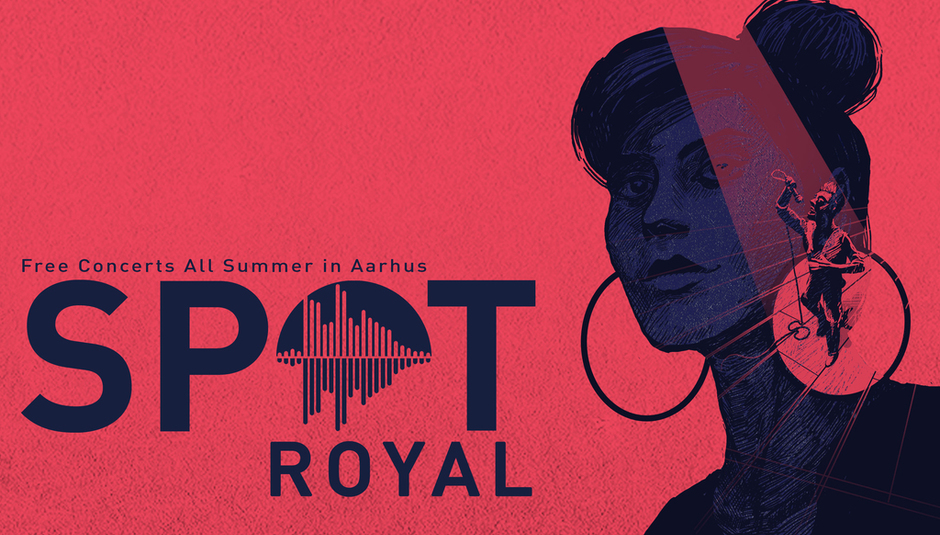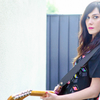In our eighth installment looking at how to organise a music festival, DiS goes behind the scenes with Esben Marcher, the main booker at Scandinavia's leading showcase event SPOT.
Hi Esben, tell me a bit about yourself and how you became involved with SPOT Festival?
I'm Esben Marcher. I'm 35 years old. I have been booking the programme for SPOT since 2010. It started out as a part time thing. I worked at a venue in Copenhagen booking bands and got involved at SPOT initially as a stage manager. I started doing the production and scheduling and eventually they asked me if I could also book the bands. So I did that and I've been involved full time for the last three years now. I was involved in the progress of the festival growing in both size and visitor numbers.
It's grown considerably since the last time I visited in 2012. What gave you the impetus to look for areas of growth?
We were a small compact event with a limited lineup of around 100 artists five years ago. So the idea actually came from the logistical position of a venue called Headquarters. At the time they were doing an anti-SPOT event, complaining about being outsiders, stuff like that. Their venue is literally just opposite the Musikhuset, which is the main venue in the city. So three years ago we decided to include their programme as part of the SPOT programme. It was confusing for guests that something else was going on inside our main area so we had some talks with them and they were really keen on doing something of their own. So I agreed with them that they should do their own booking and it grew from there. Last year we included Tape for the first time. It's been a venue for many years but is situated a bit of a way from our main area. It's quite a walk. Nothing compared to other inner city festivals, but still a way from the other venues which are all so close together. It's run by volunteers. They're really cool people who've been organising underground festivals for years. They have a really strong vision of their place and only put on stuff all of them agree on doing. It's very much based on the local scene. So we included them last year as well as some external organisers who helped put together the programme in the Godsbanen area. It's a cultural production centre and they build stages out of shipping containers so we used them too. This year we've tried to communicate that the main showcases are still in the Musikhuset but there's also this other stuff happening. Our main challenge, of course, is to keep the artistic level high so it's still appealing to visitors from abroad. The main part of SPOT is organised by the Danish Rock Council. Yes, in Denmark we have a Rock Council! I'm employed by them and we work closely with Danish Music Export. I'm based in Copenhagen and do most of the booking from there. In Denmark, we have all these trade unions for musicians, writers, and composers and they started the Rock Council in the 1980s. They're basically our foundation for the work that we do. The main objective is to develop Danish artists in commercial and artistic ways. SPOT started out as a completely Danish lineup in 1994. Initially, it was a travelling event that called in at several cities around Denmark, then after the second edition, it stayed in Aarhus. It started as a collaboration but then the Rock Council took it over in 1996. The first five years was mainly Danish guests, then we got a grant to build some international attention. So we invited journalists and industry people from mainland Europe along with a few from the US. We focused mainly on the close markets and every Danish band wanted to be on board.
Do you see the development of SPOT as being synonymous with more Danish bands getting wider international exposure?
Definitely. We try to include a lot of Scandinavian and Nordic bands on the lineup as well. There's a lot of good music out there too and we want to bring them in to help inspire Danish musicians play. Show them what is happening in Norway and Sweden. And also because it's important for people like yourself who've travelled here that it's not just about Danish music. We do try to stay focused on the Nordic aspect because that's our niche; that's our scene. There's a lot of showcase festivals around nowadays and every country seems to have at least one. It's not as big a concern of ours as it should be. The Great Escape is only two weeks away and travelling can be hard for people. I have one small child and another on the way so I can't travel every weekend.
SPOT's reputation has certainly grown in recent years.
It's such a joy having all these visitors from around the world. Also, SPOT has gained a lot of exposure from Danish bands who've crossed over into foreign markets. Someone like MØ for example, being an artist on the level she's currently at. Volbeat are another band who've done well recently, and I think their success has attracted people from abroad to our event. When you've been doing stuff for years like we have with SPOT, people tend to trust your product. We have one major difference that separates us from every other showcase festival in that there's no separate delegate entry to our venues. It can be tricky if someone's travelled from another country to see a specific band but we also want to keep the festival aspect as much as we can. We claim not to be a festival per se because we want to be a platform for new music but we still try to keep people as equal as possible. Next year Denmark will be the focus country at Eurosonic so their people are here and they need to get into shows to select some bands to play at the 2018 edition. So we have to do what we can to ensure they get in where they need to be and we have some of the Danish Music Export team working with them to make sure this happens. Sometimes that might mean they have to call the stage manager to get them in that way, but we try to accommodate them as best we can.
Is there any more room for growth?
I say this every year but I actually think we need less content going forwards! We need to think in that way otherwise it will become too big and many of the bands won't get the exposure they currently receive.
How many tickets are on sale?
If we sell out it will be around 6,000. There are 1,500 musicians here and then we have around 1,000 volunteers. Plus 400 international delegates and around 600 Danish delegates as well. Most of them buy their own tickets so that takes us to around 10,000 once we count everybody in. Plus we have some areas where you don't need a wristband this year like the Volume stage so it's quite big.
I went to a couple of after parties in Sway and Tapetown last night, neither of which form part of the official SPOT programme. Are they venues you've previously scoped out or thought of including for the future?
If we are to include everything in the programme we need more people in the office, and we can't get the money for that. So I think it works better for some things to co-exist alongside what we're doing. These days people can communicate everything through social media. Next year, I think we'll still tell people about everything that's happening but won't necessarily include it on our webpage or phone app. Proofreading this year's time schedule was a week long process! It's too big so simply, we haven't got the resource to build the festival any bigger. Our funds come from the government and sponsors plus ticket sales. We haven't got enough people working for us to make it any bigger. It's great to see people do stuff and benefit from the festival. Also, I really like seeing these guys do external things and organisers learning from it. Yesterday we had two external organisers planning stuff at the Godsbanen area. They didn't get the permits they needed from the local authorities so had to change venues. They did it on their own and we helped them move from their planned stage to one we had running already. Obviously you need to know what you're doing when it comes to organising big events.
How many people work for SPOT?
We have a core team of about ten people in the office working on production and I have two people working with me who are both volunteers.
Which festivals were an influence on SPOT in the early days? What's your business model based on?
From the start, it was inspired by Eurosonic. Also, it gives people an opportunity to meet up at festivals more than once a year. That was something we took into consideration when designing the foundations of the festival. Just giving people somewhere to meet. Because you work all year round, and probably only communicate by email or phone, so this gives them a chance to actually meet each other. With showcase events, because it involves quick changeovers, mostly without soundchecks there's a propensity for things to sometimes go wrong so the meeting facilities backstage have to be first class as a starting point. We aren't really that different from most other showcase festivals but one thing we've always done is focus on all the venues being close together. We really work on people being able to see as many shows as possible without wasting too much time in between. Next year we're looking to build on that even more.
When does the booking process begin?
We start booking bands in late fall. We do an application round. It's mainly Danish bands that apply, and we have a listening jury.
Is it only open to Danish and Nordic bands or can anyone apply from around the world?
No, just Danish, Nordic and Scandinavian bands. We do collaborations from time to time with other countries' music export groups. This year we have Spanish and Latin American artists. It's based on a cultural exchange project that's been happening for years. We've been travelling to Spain with Danish and Nordic bands for many years so of course, the Spanish people want something in return. We invited them this year and they did a big collaboration with completely new material. We don't include UK or German bands unless its some sort of collaboration project. We also have the Music City Network which has given us a German band, as one of the cities is Hamburg. Obviously, there's a lot of great music out there and people would love to play here. We get a lot of requests but SPOT needs to offer something different from all the other showcase festivals so our aim is to stay focused on just Danish and Nordic acts.
How many applications do you get on average per year?
We usually get just under a thousand applications. We listen to all of them. I have a team that comes in just after the deadline and they do a sort of pre-screening. Then we have a jury selecting 40 bands for the programme. Most of those bands you probably haven't heard of yet so this is a great opportunity for those new bands to get discovered. Whether that be by journalists and media people or record label and industry people.
What are the major pitfalls of organising an event like SPOT? What obstacles do you regularly have to overcome?
Communication of the entire programme is quite a nightmare because there are so many events on our webpage and app that it becomes impossible to tell everybody about everything. Also, we're very socially democratic being Danish so we don't highlight anything. Our poster doesn't have any names on it. It's just a graphic work. We don't work on a headliner. Explaining that to industry people can be difficult at times. We have a set wage for all bands who play on our programme. Of course booking agents want to get more money for their artists. That's their job. But we have a ceiling, even for acts that are considered big in Denmark. My girlfriend is set to give birth to our second child next week so I had to plan this year's festival for if I wasn't going to be here. And that was a great challenge, but fortunately, I have a really strong team around me. Thankfully so far it's been awfully quiet!
What's been your proudest moment while working on SPOT?
Growing from the small, compact focused edition to where we are now and including the whole city of Aarhus. We had MØ playing on a very small stage back in 2012 and now she's an internationally renowned artist so that's a great story for SPOT. Also The Raveonettes first came to attention at this festival. Mew as well back in 2002. Stories like these don't occur anymore because people know the music already. Sigrid is a good example; I saw her in Bergen last year and really liked it, so decided to book her in the really early stages of this year's programming. Since then her reputation has grown considerably whereas five years ago people would only have first discovered her at SPOT. It grows in itself. The overall success of Danish music and the standard too. I'm not saying it's purely because of SPOT but I think we've definitely helped Danish acts to start thinking internationally rather than just focus on Denmark alone. Having so many overseas visitors from all sides of the industry helps that. In the early stages of SPOT, we were really pushing Germany because Hamburg is only a two-and-a-half hours drive from here. So we'd encourage bands to play Hamburg as much as we would Aarhus or Copenhagen. Things are changing in Germany also. There's a lot of UK bands going over there. People are realising it's a reputable market. Same as we also encourage bands to play in the UK, London especially. So the emphasis on focusing internationally is paramount. A lot of Danish bands still live in places like Aarhus and Aalborg. The rent is much cheaper and you can do your own thing then drive to a show in Copenhagen or Germany.
Why do you think a city like Aarhus is more suited to an event like SPOT rather than somewhere like Copenhagen?
In the 1980s, Aarhus was a massive music city and not being based in Copenhagen is a massive feature for SPOT Festival. The local government did a research questionnaire a few years ago asking what Aarhus was known for abroad and they expected most people to come back with the art museum yet SPOT was one of the main answers. Also, Aarhus is this year's European Capital Of Culture. It was a proud moment yesterday when the mayor arrived to open this year's festival with a speech about that, because it means a lot when you have so many international guests visiting your city. I live in Copenhagen but still come here quite often.
What advice would you give someone wanting to start up their own festival?
What got me started was when I realised I wasn't a very good bass player! You need to have something that you want to really tell people. I learned that from the first festival I ever put on. It was on a beach and the first two years were amazing. It rained the third year and I realised then that a rainy beach isn't a great venue! What's helped SPOT in staying alive, succeeding and growing is our vision is to help people develop. We try not to use the term festival even though it is. We don't do SPOT because we want to do a festival, we do it because we want to help musicians grow artistically and commercially. Only do a festival if you know something about running a stage and doing the sound. There's so much work that goes into the production side. I've been at festivals where things have gone wrong and the organiser has been stood at the side of the stage, arms folded not really knowing what's going on. It's not about having a nice laminate pass and jacket with your name on; it's about being able to put things right when they go wrong and so many people lose sight of that. So always be prepared to get your hands dirty! Putting on a festival involves doing a lot of small tasks but all of them are really important. A good festival organiser has to be a multi-purpose person.
How To Organise A Music Festival #1 Best Kept Secret
How To Organise A Music Festival #2 Green Man
How To Organise A Music Festival #3 Beacons Metro
How To Organise A Music Festival #4 Pop Montreal
How To Organise A Music Festival #5 SWN
How To Organise A Music Festival #6 2Q
How To Organise A Music Festival #7 Tallinn Music Week






















